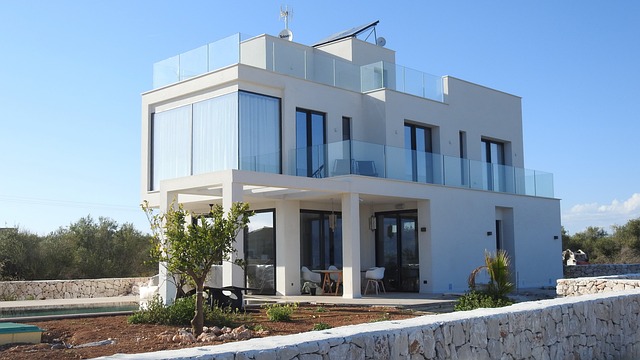When considering the purchase of a resale Executive Condo (EC) in Singapore, it's crucial to understand the financial landscape specific to EC transactions. Prospective buyers must consider their income, expenses, and adherence to the Total Debt Servicing Ratio (TDSR) and Mortgage Servicing Ratio (MSR). The Housing & Development Board (HDB) offers eligibility criteria that include income limits and occupation rules, which can affect your ability to purchase an EC. Resale ECs may offer more competitive interest rates and a variety of mortgage options due to their status after five years. Additionally, the CPF Housing Grant for ECs can reduce costs, but its availability is subject to change based on housing policies. Buyers should also inspect the property, check for necessary approvals from the HDB, and be aware of the resale price cap (RPC) for ECs. Legal due diligence includes confirming the remaining lease term and understanding any potential future costs related to it. Financial prudence requires a thorough review of your financial capacity, including your exposure limit as stipulated by the Monetary Authority of Singapore (MAS). Analyzing market trends and pricing history is essential for making an informed decision. This comprehensive approach ensures buyers can confidently navigate the resale EC market in Singapore.
navigating the intricacies of financing for a Resale Executive Condominium (EC) can be a prudent investment move. This article demystifies the EC buying process, guiding potential buyers through each step with tailored financial tips. From comprehending the unique nature of resale ECs to maximizing CPF benefits and understanding mortgage options, we provide a robust framework for prospective owners to make informed decisions. Additionally, we delve into strategic budgeting, highlighting essential cost considerations, and underscore the importance of due diligence in legal and financial aspects of resale EC transactions. With these insights, buyers can confidently embark on their journey towards acquiring a resale EC.
- Understanding Resale Executive Condominiums (EC) Financing: A Comprehensive Guide for Buyers
- Assessing Your Financial Readiness for a Resale EC Purchase
- The CPF Housing Grant: Maximizing Your Eligibility for a Resale EC
- Navigating Mortgage Options for Resale Executive Condominiums
- Strategic Budgeting and Cost Considerations for Resale EC Ownership
- Legal and Financial Due Diligence in Resale EC Transactions: What Buyers Must Know
Understanding Resale Executive Condominiums (EC) Financing: A Comprehensive Guide for Buyers

Navigating the financing options for a resale Executive Condominium (EC) in Singapore involves a clear understanding of the unique financial framework tailored for EC buyers. Unlike new ECs, resale ECs are second-hand units sold on the open market, and their financing paths differ from those of new property purchases. Prospective buyers should first familiarize themselves with the eligibility criteria set by the Housing & Development Board (HDB), as they apply to both new and resale ECs. This includes the income ceilings and occupation rules that potential owners must adhere to.
When it comes to financial planning, resale EC buyers have several options at their disposal. They can opt for bank loans, which are the most common form of financing, with competitive interest rates often lower than those for private properties. Another option is the HDB Concessionary Loan, which offers favorable loan terms for first-time flat buyers applying for an EC. Additionally, buyers may consider a mix of both bank loans and HDB’s loan to spread the repayment risk. It’s advisable to engage with multiple financial institutions to compare rates and terms, ensuring the most suitable financing package tailored to one’s financial situation. This due diligence is crucial in the resale EC market, where unit ages and conditions can vary significantly. Understanding the nuances of EC financing will empower buyers to make informed decisions and secure their dream home with confidence.
Assessing Your Financial Readiness for a Resale EC Purchase

When contemplating the purchase of a resale Executive Condominium (EC), it’s crucial to thoroughly assess your financial readiness. Prospective buyers should begin by evaluating their current financial situation, which includes understanding their income stability and monthly expenses. This due diligence ensures that the EC’s monthly mortgage payments align with your budget, leaving you financially comfortable. Additionally, potential buyers must consider the Total Debt Servicing Ratio (TDSR) and Mortgage Servicing Ratio (MSR) regulations, which dictate the maximum percentage of one’s income that can be used for servicing all types of outstanding credit facilities and housing loans respectively. A well-planned financial strategy is essential to navigate these ratios without overextending your finances.
Furthermore, when considering a resale EC, it’s imperative to factor in the additional costs associated with such a purchase. These include legal fees, stamp duties, and renovation expenses. The CPF housing grant for ECs can offer financial assistance, but it’s important to understand the eligibility criteria and application process. Prospective buyers should also consider the resale market trends and potential value appreciation of the EC unit over time. By conducting a comprehensive financial assessment, you can make an informed decision that aligns with your long-term financial goals and ensures a secure investment in a resale Executive Condominium.
The CPF Housing Grant: Maximizing Your Eligibility for a Resale EC

When considering the purchase of a Resale Executive Condominium (EC), understanding the CPF Housing Grant opportunities can significantly enhance your financial planning. The CPF Housing Grant is a subsidy scheme provided by the Singapore government to help first-time buyers with their housing needs. To maximize your eligibility for this grant when purchasing an EC, it’s crucial to familiarize yourself with the grant’s parameters. For instance, both you and your spouse must not own any residential property or have applied to purchase, build, and/or acquire one within the 30 months before the application for a CPF Housing Grant. Additionally, your household income should not exceed the stipulated ceiling.
The resale EC market offers a unique opportunity for families looking to benefit from the CPF Housing Grant. Unlike new ECs, resale ECs are second-hand units sold on the open market, which can sometimes offer more competitive prices and greater variety in locations and sizes. It’s advisable to engage with a property agent who is well-versed in the specifics of the CPF Housing Grant and its application to resale ECs. They can guide you through the eligibility criteria, assist with the financial calculations, and help you navigate the complexities involved in securing the grant, ensuring you make the most of this valuable resource in your pursuit of homeownership. Remember to check the latest updates on the CPF Housing Grant as eligibility criteria and grant amounts are subject to change based on government policies.
Navigating Mortgage Options for Resale Executive Condominiums

When considering the purchase of a resale executive condominium (EC) in Singapore, navigating the mortgage options available is a pivotal step. Prospective buyers should be aware that unlike new EC units, resale ECs are subject to different loan criteria, primarily because they can be sold on the open market after five years—and potentially without restrictions after ten years. This distinction often means more competitive interest rates and a broader range of financial products from various banks and financial institutions. It’s crucial for buyers to compare these options, taking into account factors such as loan-to-value (LTV) limits, which can vary based on the age of the EC and the buyer’s profile. Additionally, buyers should evaluate the duration of their mortgage, as this will influence their monthly repayment obligations and overall financial commitment. By thoroughly assessing the various mortgage solutions tailored for resale ECs, buyers can make informed decisions that align with their long-term financial goals and lifestyle preferences. Always consult with a financial advisor or a mortgage broker who specializes in residential property financing to navigate these options effectively.
Strategic Budgeting and Cost Considerations for Resale EC Ownership

When contemplating the purchase of a resale Executive Condo (EC), strategic budgeting and careful cost considerations are paramount. Prospective buyers should first ascertain their financial capabilities, as ECs are designed for the aspirations of middle-income families. The pricing of resale ECs can vary significantly based on factors such as location, age, and condition of the unit. It’s crucial to account for both the initial purchase price and the ongoing maintenance fees when assessing affordability. Beyond the immediate costs, potential buyers must also consider the future; the CPF Housing Grant for ECs, which can substantially offset the purchase price, is available to eligible applicants, making it a critical element in your financial planning. Additionally, the resale market offers a diverse range of options, from units that are move-in ready to those that may require some renovation. The choice between these can be influenced by personal preferences, budgetary constraints, and the potential for value appreciation. It’s advisable to perform a thorough analysis of both short-term and long-term costs associated with resale EC ownership to ensure a financially prudent decision. This includes understanding the market trends, potential refinancing options, and the impact of any renovations on resale value. With a well-planned budget and a clear understanding of the costs involved, buyers can navigate the resale EC market with confidence, securing a home that meets their needs without overextending their finances.
Legal and Financial Due Diligence in Resale EC Transactions: What Buyers Must Know

When considering a resale Executive Condo (EC) in Singapore, legal and financial due diligence is paramount to ensure a smooth transaction. Buyers must have a comprehensive understanding of the EC’s remaining lease, as this affects its value and the potential costs for extension or en bloc sale. It is crucial to review the existing CPF housing grants available, such as the CPF Housing Grant for EC, which can significantly reduce your outlay. Additionally, buyers should be fully aware of the resale price cap (RPC) that applies to ECs, which sets a limit on the amount one can sell the unit for after purchasing from the open market.
Furthermore, potential buyers must inspect the EC’s condition and confirm that all necessary approvals are in order. This includes verifying that the EC has been approved for sale by the Singaporean government’s Housing & Development Board (HDB). Prospective residents should also consider the total debt servicing ratio (TDSR) and the mortgagor’s exposure limit set by the Monetary Authority of Singapore (MAS), to ensure that they can manage their mortgage repayments comfortably. Understanding the resale market trends and pricing history of the EC will also provide valuable insights, enabling buyers to make informed decisions based on data rather than assumptions. This due diligence process is integral for prospective buyers to navigate the complexities of a resale EC transaction successfully.
When venturing into the realm of Resale Executive Condominium (EC) financing, it’s imperative for buyers to have a clear understanding of the various financial aspects involved. This article has outlined the crucial steps to assess your readiness, explore mortgage options, and leverage the CPF Housing Grant effectively. Prospective EC owners must also engage in strategic budgeting, considering all associated costs to ensure long-term financial stability. Legal and financial due diligence are non-negotiable to safeguard your investment. Armed with this comprehensive guide, you are now well-equipped to navigate the Resale EC market with confidence and make informed decisions that align with your financial goals.
